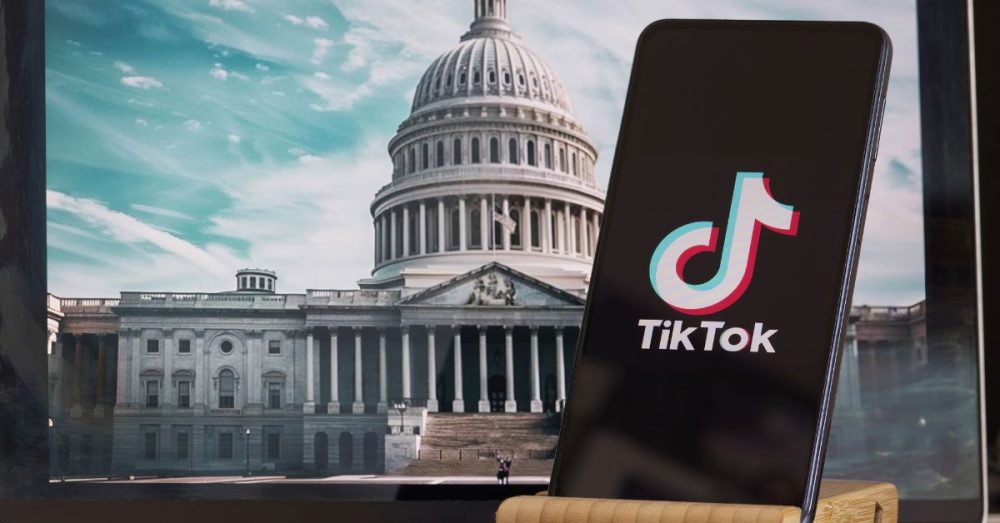The federal ban on social media platform TikTok is days away from taking effect.
If no action is taken by the President, Congress or the Supreme Court the ban will take effect on January 19, 2025.
As of the time of this writing, only the Supreme Court has signaled that it might intervene.
However, in typical fashion, no justice has explicitly stated how they might rule in the case. Therefore, it is unknown if potential action by the court would even be in TikTok’s favor.
TikTok appealed to the Supreme Court for a stay on the ban on December 16th, telling the Court that it would suffer “immediate irreparable harm” if it did not delay the ban. Two days later, The Supreme Court said it would consider a challenge to the law on an expedited basis but did not issue a stay.
This came after the D.C. Circuit Court of Appeals unanimously ruled to uphold the ban, The Dallas Express reported.
The legislation passed by Congress and signed into law by President Joe Biden in 2024 requires ByteDance, TikTok’s Chinese parent company, to sell the platform to an American owner to avoid the ban. The law also allows the president to issue a 90 day extension if a deal is in the works.
Despite widespread speculation about who might purchase it, no deal has been secured.
The ban would take effect just one day before President-elect Donald Trump would again take the oath of office. Trump has expressed promised to “save TikTok” on the campaign trail and as discussed legal actions, he could possibly take in office to reverse the ban, per The Washington Post.
This is a departure for the 45th and 47th president. During his first term in office, Trump issued an executive order that would have banned TikTok unless it’s sold to an American company. Hours before downloads were set to stopped pursuant to his executive order, Trump tentatively approved a joint sale of the social media platform to Oracle and Walmart in September 2020.
The arguments in favor of the ban focused on national security concerns.
“The interactions with the Chinese government, and the ability of the Chinese government to put pressure on the ByteDance company, is still substantial,” Chris Kelly, former chief privacy officer at Facebook, reportedly told NPR after the Trump-era ban was announced.
“It won’t be strange to have interaction between the two companies on a number of different issues, including algorithmic operations, so that could stretch into personal data pretty easily,” Kelly added.
These concerns were recognized by the majority opinion of the D.C. Circuit.
“We recognize that this decision has significant implications for TikTok and its users. Unless TikTok executes a qualified divestiture by January 19, 2025 — or the President grants a 90-day extension based upon progress towards a qualified divestiture … its platform will effectively be unavailable in the United States, at least for a time. Consequently, TikTok’s millions of users will need to find alternative media of communication,” the court majority wrote.
The court blamed the Chinese government for this.
“That burden is attributable to the [Chinese government’s] hybrid commercial threat to U.S. national security, not to the U.S. Government, which engaged with TikTok through a multi-year process in an effort to find an alternative solution,” the judges postulated.
Arguments against the ban highlighted free speech.
TikTok responded with a statement to the appellate court ruling indicating the company would fight the ban until it exhausted all options. “The Supreme Court has an established historical record of protecting Americans’ right to free speech, and we expect they will do just that on this important constitutional issue. Unfortunately, the TikTok ban was conceived and pushed through based upon inaccurate, flawed and hypothetical information, resulting in outright censorship of the American people. The TikTok ban, unless stopped, will silence the voices of over 170 million Americans here in the US and around the world on January 19th, 2025,” the company’s official statement read on X.
“Banning TikTok blatantly violates the First Amendment rights of millions of Americans who use this app to express themselves and communicate with people around the world,” Patrick Toomey, deputy director of the ACLU’s National Security Project concurred.
The Appellate Court considered First Amendment objections in its decision, writing “The First Amendment exists to protect free speech in the United States. Here the Government acted solely to protect that freedom from a foreign adversary nation and to limit that adversary’s ability to gather data on people in the United States.”


